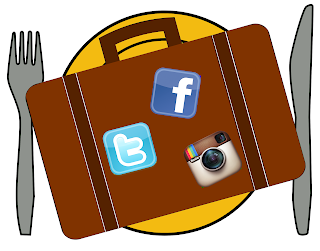Why does social media matter for those in hospitality? A
Google search for "hotel" turns up 3.1 billion (that’s billion with a
b) results in 1.05 seconds. A similar search on "restaurant" turns up
almost 1.9 billion in 1.56 seconds. And the top results will be for such places
as Hotels.com, Expedia, Trivago, Kayak and Restaurants.com.
For most users those top results will be all they need.
But for others the search will be slightly more involved or the decision to
click will take a few seconds longer. The difference? Loyalty to a brand or
recollection of another person’s great experience.
What can help businesses in hospitality (hotels and restaurants, for example) earn those few seconds of extra
consideration?
Social media – it is the very key for industries whose
biggest driver is word-of-mouth marketing.
But how? And, perhaps more importantly, why? According to
a 2015 article on Harvard Business Review:
- "Consumers under 35 spend almost four hours per day on social media, and more of that time is being spent engaging with brands."
- "17% of people older than 55 prefer social media over the telephone for service."
And, of the four stages of the consumer decision-making
process – need recognition, information search, evaluation and decision –
social media increasingly plays a role in the first three….
So how should those in hospitality – particularly on the
customer service side – use social media to attract, assist and retain loyal
customers?
10 Social Media Resources for Hospitality
Customer Service
The article 5
Social Customer Service Best Practices from Cision suggests
restaurants and hotels graduate their social care customers to a more reliable
communications platform such as SMS or email, get all employees on board with
appropriate social responses and understand that customers expect a
near-immediate response on social media.
- Key takeaway: "Today, 39 percent of social media complainers who expect a reply want it to come within 60 minutes, yet the average response time from businesses is 5 hours,” says social media expert Jay Baer in the piece.
- A key takeaway: "Knowing where your guests communicate online will help you provide a better customer service experience while enabling you to reach the right people at exactly the right time."
- A key takeaway: "If you’re not visibly active on social media, then you’re missing out on a large customer base."
- A key takeaway: "A boutique hotel could easily muscle in on the big boys’ territory with well-thought out answers to travelers’ queries. In the process, you’ll build authority and possibly carve out a niche for your brand."
- A key takeaway: "Ninety one per cent of retail brands use two or more social media channels, and the hospitality industry should be no different."
- A key takeaway: "More than other customer service channels, social lends itself to creating memorable experiences for customers."
7. Customer service in its broadest sense means offering something of value on social to current and future customers. So the post 10 Examples of Great Social Media Content for Restaurants on the EnPlug Blog offers tips including the obvious "Share mouth-watering photos” and the not-so-obvious "Get your employees involved."
- A key takeaway: Show your customers that you’re on social for more than just pushing out promotions. Whether you’re answering questions, addressing concerns, saying thanks, or just responding with wit, your responses will go a long way."
- A key takeaway: "From streamlining content creation and posting to social listening and analytics integrations, social media tools come with a range of innovative features …."
- A key takeaway: "Not only are you fighting for the reviewer’s business, but you’re fighting for everyone else who reads the review."
Bonus: If you’re looking for some thought
leaders in the area of social media and hospitality you might check out The
Top 16 Leaders in Hospitality to Follow on Twitter from Capterra.
Is
social media here to stay as a fact of life for customer service in social
media? For sure. Will it evolve and grow as a series of customer service
channels? Absolutely. What do you think?
Related posts:






